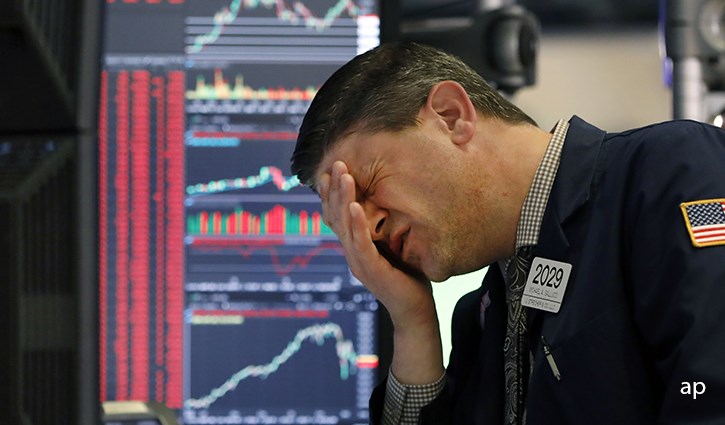
Looking at the market today, it's easy to forget where we were at around 15 months ago. Many of the market declines of the past decade or so, including the stock market crash of 2008, are fast becoming faded memories for most of us. But it is the investors who endured these difficult times came out in perhaps the best shape, and as is often the case, those who had the nerve to stay invested were richly rewarded.
And yet, the decision about whether to change your investment strategy or sell a fund is usually not clear-cut, even in hindsight. After the dust has settled on a decision and the investment has performed well or poorly, the “right” answer is wholly dependent on the individual. Selling criteria are not a one-size-fits-all list that fit every investor, but there are some situations when selling is particularly ill-advised. Christine Benz, director of personal finance at Morningstar, picks these three key examples.
Poor Short-Term Performance
It’s almost never a good idea to sell a fund based on weak performance alone, especially over the short-term. You might have been tempted to sell in last year's market sell-off for example, but we now know the Covid crash was the shortest in history. Instead, if a fund is lagging its peers or an index, your first move should be to investigate why that is. It could be that the manager is simply sticking with an investment strategy that happens to be out of favour, as has been the case with many value-leaning funds in recent years. But weak performance may also be a sign that something more serious is afoot - Morningstar's own research has found that many active funds fail to beat the market over the long-term.
Researching an investment’s fundamentals can be time-consuming, which is why you don't want to get too caught up in investigating short-term bouts of underperformance. Most funds, especially those that are using truly active strategies, will trail their peers at times, often for very good reasons and sometimes for a few years or more (that could be the case with some perfectly solid, defensively positioned funds during a market rally, for example).
Instead, save your energy for checking up on funds when they've underperformed over longer stretches of time or in a period when you would have expected them to perform well. If, for example, you selected a fund because of its low-risk tendencies, but it lost far more than its peers in 2020, that's a legitimate reason to ask whether something about its strategy changed or its risk controls weren’t what you thought they were. And even if the fund isn’t bad, it may not be a good fit in your portfolio.
Inconsistent Performance
On a similar vein, investors often get themselves worked up when a fund’s relative returns are inconsistent on a year-to-year basis. Sure, it can be comforting to see a fund land in its category's top half like clockwork—and a small handful of funds has actually managed to generate return rankings that have been remarkably consistent from year to year.
But holding all of your funds to that standard would cause you to kick out some fine offerings that, while not consistent performers on a calendar-year basis, are consistent where it counts: they employ their strategies with discipline and don't waver, even if the market isn't rewarding them in the near term.
It's also important to remember that a calendar year is a fairly short and arbitrary time period, and a fund that has looked erratic over January-December time periods may appear perfectly consistent when measured over a different 12-month time frame—say, from April to March of each year. Investors shouldn't get too hung up on year-to-year performance consistency when deciding what to hold in their portfolios. Looking at annualised returns can be a better way to judge long-term performance, as these smooth out good and bad periods to indicate what average return an investor has received each year.
Macroeconomic News
Macroeconomic news - whether it's the direction of interest rates, rising inflation or GDP growth in China and India - often appears right alongside news about the market's trajectory. And it's true that what's in the headlines has the potential to move the markets up or down on a daily basis, or even over longer time frames. The trouble is that by the time a certain news item makes its way into the headlines, other market participants have already digested it and priced it in.
If you decide to sell your fund based on that news, you're likely to be too late. Instead, a better tack for investors, at least as it relates to their portfolios, is to keep their heads down and focus on factors that they can control: their savings and spending rates, the quality of their investment holdings, and the total costs they pay for those investments. There is much virtue in tuning out the noise when it comes to managing your portfolio.
©2021 Morningstar. All rights reserved. The information, data, analyses and opinions presented herein do not constitute investment advice; are provided as of the date written, solely for informational purposes; and subject to change at any time without notice. This content is not an offer to buy or sell any particular security and is not warranted to be correct, complete or accurate. Past performance is not a guarantee of future results. The Morningstar name and logo are registered marks of Morningstar, Inc. This article includes proprietary materials of Morningstar; reproduction, transcription or other use, by any means, in whole or in part, without prior, written consent of Morningstar is prohibited. This article is intended for general circulation, and does not take into account the specific investment objectives, financial situation or particular needs of any particular person. Investors should consult a financial adviser regarding the suitability of any investment product, taking into account their specific investment objectives, financial situation or particular needs, before making any investment decisions. Morningstar Investment Management Asia Limited is licensed and regulated by the Hong Kong Securities and Futures Commission to provide investment research and investment advisory services to professional investors only. Morningstar Investment Adviser Singapore Pte. Limited is licensed by the Monetary Authority of Singapore to provide financial advisory services in Singapore. Either Morningstar Investment Management Asia Limited or Morningstar Investment Adviser Singapore Pte. Limited will be the entity responsible for the creation and distribution of the research services described in this article.












.png)








